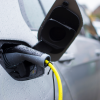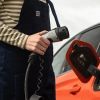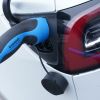Just Thorpe Park in Surrey, Chessington in London, Blackpool Pleasure Beach, Crealy in Devon and M&Ds in Scotland provide EV chargers for visitors, with many other popular and well-loved attractions in other regions currently offering none at all.
At the five parks that have some provision, the average number of chargers on offer is four.
The parks that currently don’t offer any charging facilities include such well-known names as Legoland Windsor in Berkshire, Alton Towers in Staffordshire, Gulliver’s sites in Cheshire, Yorkshire and Buckinghamshire and Oakwood in Wales.
But the good news is that the first two of these parks have publicly committed to installing chargers before the end of the year.
The RAC study also looked at the nearest ultra-rapid chargers to top theme parks as the next most convenient place to charge on a day out and found they were an average of seven miles away, with each offering an average of only five chargers each. In some parts of the country however, drivers need to travel much further, with the closest ultra-rapid chargers to Pleasurewood Hills in Suffolk and Flamingo Land in North Yorkshire being some 25 miles away.
RAC Charge Watch data shows that drivers currently pay on average 73p per kWh of electricity at an ultra-rapid (100kW+) charger, making an 80% charge of a family-sized EV currently cost £37.39. If public chargers were only subject to 5% VAT like home chargers, that cost would be around £4 cheaper.
Comparisons with major theme parks elsewhere in Europe show just how different the situation can be when it comes to on-site electric vehicle charging. Efteling in the Netherlands has capacity for 174 electric cars to charge at once, while PortAventura in Spain can accommodate 150 cars charging and Europa Park in Germany offers 32 chargers. It’s far from a perfect picture everywhere however, with Disneyland Paris and Gardaland in Italy having just four chargers each.
RAC spokesman Rod Dennis said: “Even though most people visiting adventure and theme parks in electric cars will be starting out fully charged from home, many will still need to charge on the way back depending on the length of their journey and their vehicle’s range. For those travelling considerable distances to reach them it surely makes sense to have some chargers at theme parks as cars will be parked for long periods, making slower chargers ideal.
“It’s a little disappointing therefore to find some big-name attractions aren’t yet providing any charging facilities, but the situation is thankfully changing with several having stated they’re looking into installing chargers in the near future. We look forward to these plans becoming a reality to make drivers’ lives easier.
“As things stand, families with electric cars who need to recharge after enjoying a day out will no doubt be relying on ultra-rapid chargers to get on the move again as quickly as possible. Our research shows drivers will have to travel only an average of seven miles from a theme park to reach one of these, although in some parts of the country the distance is considerably further. Fortunately, with every month that passes provision is improving and in fact over the last 12 months the number of ultra-rapid chargers in the UK has nearly doubled to 8,772.2
“Some leading theme parks in other parts of Europe are currently putting the UK in the shade when it comes to more extensive electric charging infrastructure. As they’ve decided it’s right to put chargers for their visitors in place, we now need all major theme park operators in the UK to come to the same conclusion.”
Quentin Willson, automotive journalist and founder of the EV campaign FairCharge, added: “Theme parks are an obvious example of how we need to make sure the UK’s future charging infrastructure really is joined up.
“Parks, attractions, museums, holiday centres, hotels and leisure facilities need to have plenty of chargers for visitors in EVs. Drivers will base their leisure choice destinations - as many already do - on if there are reliable charging facilities. This is the future.”
In a bid to stimulate the take-up of electric vehicles and make public charging more cost-effective, the RAC is supporting the FairCharge campaign’s call to get VAT on public electricity reduced from 20% to match the 5% domestic rate.









